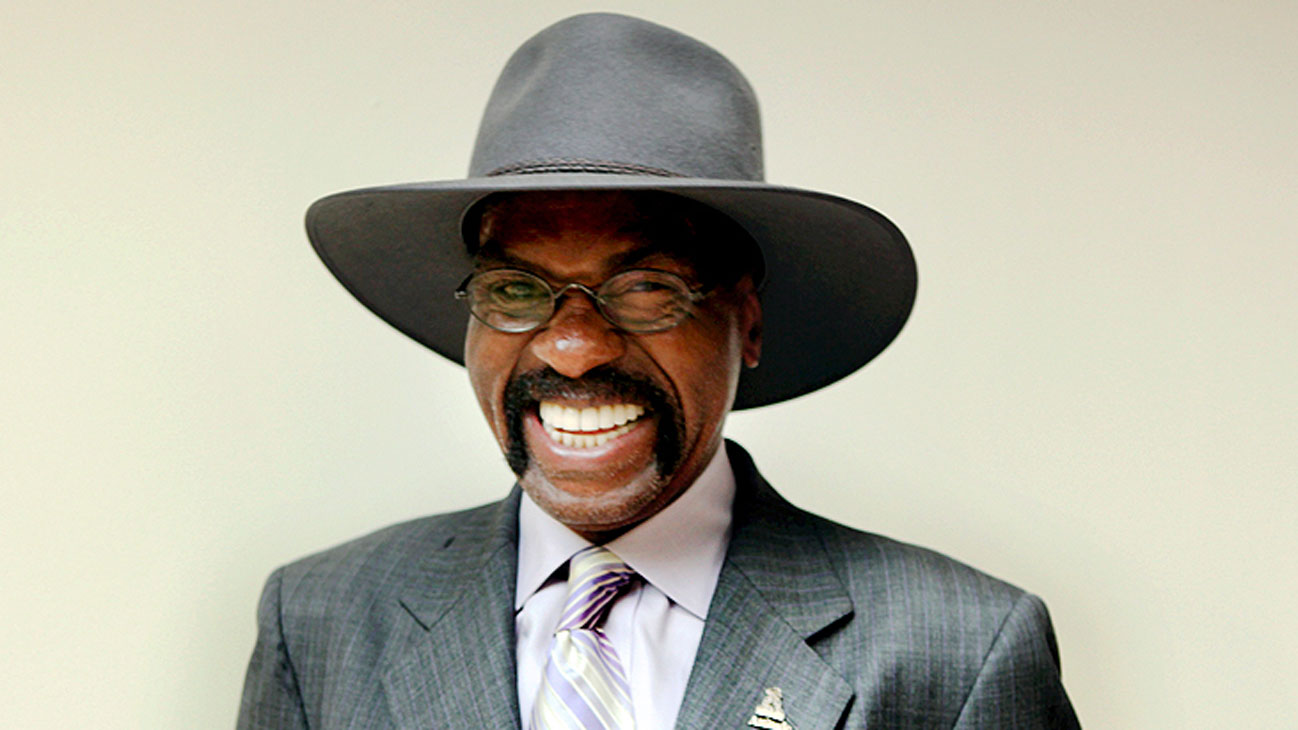When I heard the news of Rubin “Hurricane” Carter’s passing yesterday morning, it hit me like a punch to the gut that his opponents in the boxing ring experienced many times. It wasn’t a surprise (I knew it was coming), but it still hit incredibly hard. Rubin was one of the toughest people, both mentally and physically, that I’ve ever met, and despite the severity of his illness, it seemed like somehow he’d overcome it, the way he overcame every obstacle placed in front of him throughout his miraculous life.
I first reached out to Rubin in 1996, shortly after Farah and I started Speakers’ Spotlight. I was familiar with his story through Bob Dylan’s song “Hurricane”, which Dylan wrote after meeting with Rubin in prison. I learned more about Rubin’s case when I took a Civil Liberties course in law school. I picked up his autobiography, The Sixteenth Round: From Number 1 Contender to Number 45472, and read it on a vacation. I couldn’t put it down, and Farah couldn’t get me to do anything until I finished the book. When I was done, I gave it to Farah, and then she was equally riveted by his story and his passionate plea for help. When we returned from holidays, I picked up Lazarus and the Hurricane: The Freeing of Rubin “Hurricane” Carter, and learned that Rubin might be living in Toronto. I tried to track him down, which proved to be quite difficult. I asked anyone I could think of who might know Rubin, and after several dead-ends, was given a number I was told might be his. I remember making the call, and after a few rings, a deep baritone voice came on the voice-mail:
“If you got this far, or this close to me, you know what to do after the beep.”
It had to be him. I left a voice-mail message, and to my surprise, he called me back a few hours later. I explained who I was, and asked him if he’d be willing to meet with Farah and me, to discuss the possibility of working together in connection with his speaking engagements. He was doing an interview at the CityTV building in downtown Toronto a few nights later, and invited us to come watch and meet with him afterwards. I still recall how nervous I was to meet him, but as soon as we did, he put us at ease. He was passionate and fiery during the interview, but warm and soft spoken when we met. He liked our story, the fact that we had recently quit our jobs to start a business together, and that night began a 18-year relationship that has brought with it many personal and professional highlights. Here are a few:
I remember the day Rubin told me that a movie starring Denzel Washington was going to be made about his life. A couple of years later, he invited Farah and me to the film’s premiere, which took place during the 1999 Toronto International Film Festival. Rubin was seated directly behind us during the screening, and when the film ended, the entire audience rose to their feet, turned towards Rubin, and gave him a standing ovation that lasted several minutes. It was surreal to watch the film with Rubin sitting just a few feet away from us, and then see his beaming smile when the lights came on in the cinema. It’s a moment I’ll never forget.
After the film was released, speaking requests started pouring in from as far away as Sweden and Australia, but one stands out more than any other. It was to speak at the inaugural World Reconciliation Day celebrations, along with Nelson Mandela, in Melbourne. Just a few weeks earlier, I attended one of Rubin’s speeches in Toronto, and there was a Q&A following his remarks. He was asked if he had any personal heroes that he’d like to meet, but hadn’t yet had the opportunity. Without hesitation, his answer was Nelson Mandela. As you might imagine, I was pretty excited to call Rubin and tell him about this opportunity. He told me that I better not be joking with him. Of course, I wasn’t. That was a good day.
I consider myself incredibly lucky to have worked with, and learned so much from, Rubin over these past 18 years. He taught me the importance of compassion and forgiveness; the importance of standing up and fighting for what you believe in, and what’s right. He taught me about the victory of substance over form. Most of all, he taught me to never, ever, ever, ever, give up, no matter what setbacks you face, or obstacles are placed in front of you. As Rubin used to say at the conclusion of his speeches:
“If you don’t give up, if you keep on fighting no matter what the odds are, no matter what the circumstances are, no matter what the obstacles may be, because obstacles are not placed in front of us to stop us, but simply to make us stronger for the next obstacle to come. Life itself is an obstacle course and you’ve got to run it. You’ve just got to run it. So dare to dream. Dare to dream. Don’t give up, don’t ever give up on anything, because when you give up on anything you are not giving up on that thing you think you are giving up on, you are giving up on yourself. Don’t give up. Dare to dream.”
Farah and I have reflected on these words many times over the past 18 years. Without even realizing it, Rubin has helped us through many tough times, and I’m sure there are many more people he has helped in similar ways through his inspirational words and selfless actions.

